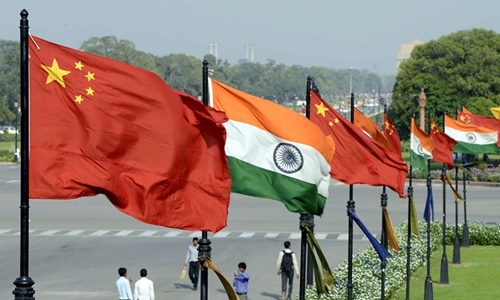Global Times (16 June 2020) – Amid China-India border disputes, some Indian experts suggested that India should “rethink” the one-China principle at a webinar on Friday. Some hawkish Indian experts, including former Indian deputy national security adviser Arvind Gupta, raised the idea that India should support the “democratic movement” in Hong Kong, increase India’s “economic and technological relations’ with Taiwan, passively help people in Tibet “organize protests when Chinese leaders visit India,” and reject joining the Regional Comprehensive Economic Partnership unless Hong Kong and Taiwan are made members.
Do these Indian experts think they have explored some policy leverage that New Delhi can use to counter China? Do they think they’ve found an Achilles’ Heel of the mainland?
These strategic experts lack strategic vision. For example, the one-China principle is widely acknowledged by the international community and is also the prerequisite for establishing diplomatic relations with the People’s Republic of China. But some hawkish Indian experts and media outlets seem to want to crack it. These people are actually suggesting India play with fire by challenging China’s bottom line. They have also underestimated China’s resolve to maintain territorial integrity. They want to jeopardize China’s core interests, but their illusionary views are unlikely to affect the Indian government’s acknowledgement of the one-China principle.
India recognized the one-China principle as early as 1950 when the two countries established diplomatic relations. Challenging the one-China principle to provoke China will not prosper, but will only be detrimental to India’s interests. The Indian government is expected not to let such negative sentiment sabotage China-India relations and intensify the two countries’ disputes.
Governments of some countries used to provoke China on China’s core interests, including Taiwan and Tibet questions. But, in the end, those governments would understand China’s firm stance that it won’t trade anything for its core interest of territorial integrity. China has enough will and ability to safeguard its core interests. Some Indian scholars should have a better understanding of it.
India itself is also troubled by separatist forces. In fact, many developing countries are facing the challenge of dealing with separatism. Indian strategic experts should have a deep understanding of this, rather than thinking of inciting separatism in other countries. With China’s rise, some Indian experts’ suspicions about China have also been growing. They need to have a candid dialogue with Chinese experts to deepen mutual understanding.


